Solar-powered NTFP value chain for tribal women
- Proposed areas of implementation
- Potential areas of implementation
Project Partner
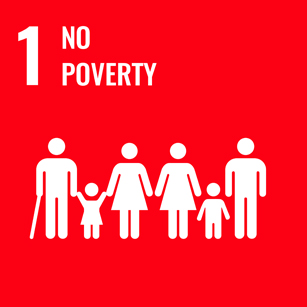
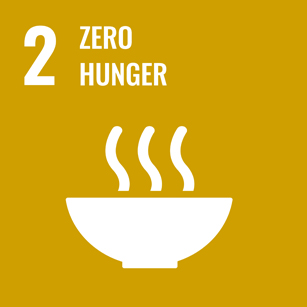
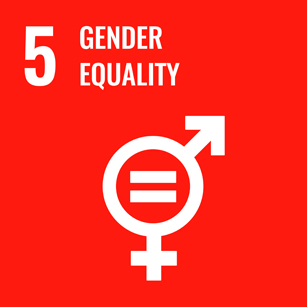
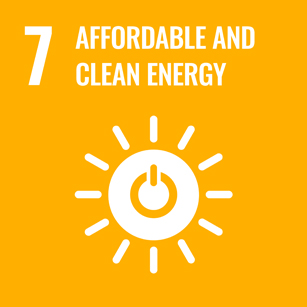
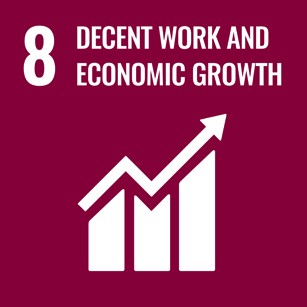
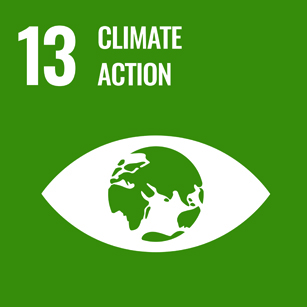
This project aims to benefit tribal communities in 38 villages in Kotra block of Udaipur district in Rajasthan by establishing a renewable energy-based value chain for non-timber forest produce (NTFP) and implementing climate-smart agriculture practices.
The tribal population, mainly from the marginalised Bhil and Garasiya communities live in small, remote, and widely scattered hamlets in this block. The region is also subject to climatic variations, resulting in low agricultural productivity and migration.
The project developed by Self Reliant Initiatives through Joint Action (SRIJAN), a non-profit committed to enhancing the overall well-being of the rural poor, aims to improve the resilience and adaptive capacities of farming communities in this block to climate-induced risks, and enhance their livelihood opportunities through renewable energy-based value chain development for NTFPs. A particular focus of this project is on creating sustainable livelihoods for women through collectives.
Context
The district of Udaipur, in Rajasthan, falls under the Sub-humid Southern Plain and Aravallis agro-climatic zone of the state, with average annual rainfall of 688 mm. The regions under this zone have predominantly hilly and undulating terrain, receive scanty rain, and often witness long dry spells, even during monsoons. These factors result in limited surface and groundwater resources and heavy topsoil erosion, resulting in low crop yields. For example, the proposed project site—a cluster of 38 villages in Kotra block, has a net sown area of only 19%, according to SRIJAN.
About 50% of the district’s population are scheduled tribes (STs), including the Bhils and Garasiya, some of the most backward tribes in the region. The landholdings of the tribal population in the district are fragmented and marginal (~0.53 ha per household). In Kotra, the proposed project block, tribal communities live in small, remote, and widely scattered hamlets. Such a tiny parcel of land, with limited access to agricultural inputs, irrigation, and credit, means that agriculture is a subsistence activity. To make ends meet, the community depends on income from multiple sources—non-timber forest produce (NTFP), agricultural labour on extensive farmlands in the plains, stone-cutting, livestock rearing, and work packages under Mahatma Gandhi Rural Employment Guarantee Act (MGNREGA).
Primary data collected by SRIJAN shows that NTFP contributes the most to household income within multiple avenues of income. Historically, the tribal communities in the region are ‘forest dwellers’ living within or on the fringes of forest areas and harvest forest produce for sale and consumption (fruits, seeds, berries, spice, herbs, etc.).
Lack of local opportunities and poor incomes lead to migration of the tribal population to other parts of the country. In Kotra block, for example, data collected by SRIJAN shows that, on average, 49% of households migrate seeking employment. Migration is significantly more common among men than women, burdening them (women) with additional responsibilities. For example, while women traditionally undertake livestock rearing and NTFP collection, they now have to engage in agriculture with limited knowledge and resources. Furthermore, hardships in earning a livelihood have affected women’s health in the region. Primary data suggests problems of food security (inadequacy) problems throughout the year, resulting in poor health outcomes. According to the national family health survey (NFHS 4, 2015-16), 74% of women aged 15-49 and 80% of children aged 6-59 months in Kotra block are anemic.
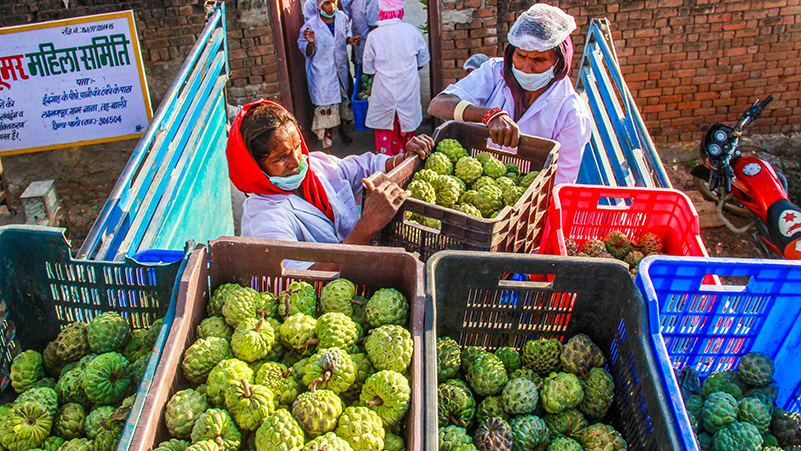


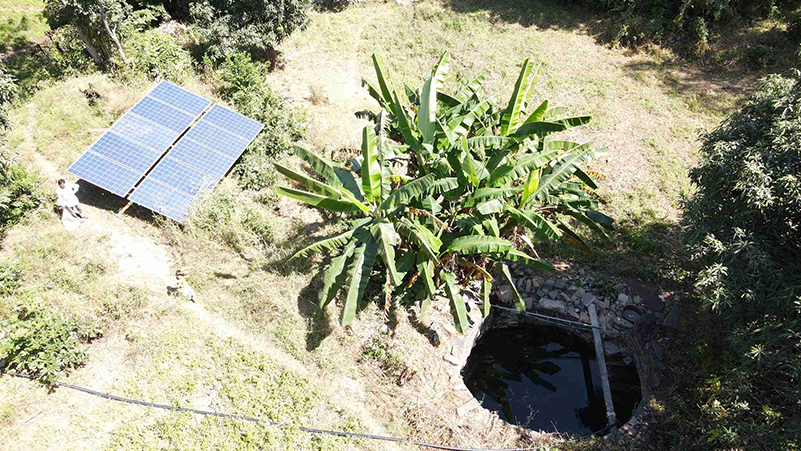

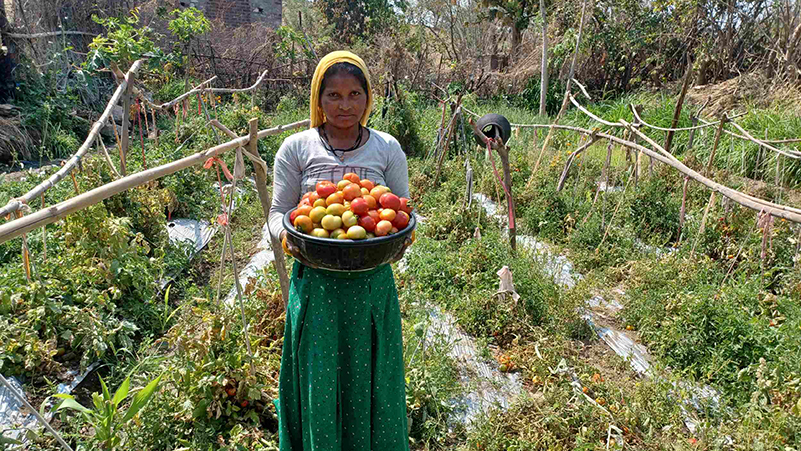
Problem statement
Economic activities and livelihood opportunities are limited in Kotra block due to poor agro-climatic conditions, small landholding size, lack of irrigation, and poor quality of natural resources. These hardships are magnified for the backward, socially, and economically marginalised tribal communities such as Bhils and Garasiyas. To make ends meet, the community depends on income from multiple sources—non-timber forest produce (NTFP), agricultural labour on extensive farmlands in the plains, stone-cutting, livestock rearing, and work packages under Mahatma Gandhi Rural Employment Guarantee Act (MGNREGA). Further, the impacts of climate change are reducing their incomes from agriculture, animal husbandry, and NTFPs.
Women in these communities face additional burdens—along with performing their traditional roles, they now also have other responsibilities due to the migration of men. For example, in the Kotra block, on average, 49% of households migrate seeking employment and it is more common among men than women. Women have to engage in agriculture, farm labour, NTFP collection and livestock rearing, with limited knowledge and resources. Furthermore, hardships in earning a livelihood have affected women’s health in the region.
Goals and objectives
SRIJAN’s project is actuated by the goal of tackling climate change impacts through mitigation and adaptation efforts, while simultaneously improving the livelihoods and health of tribal women (5000 women, 20,000 indirect beneficiaries/family members of beneficiaries) in 38 villages in Kotra block, Udaipur district, Rajasthan.
The specific objectives of the project to achieve the above twin goals are as follows—
1. Establishment of a DRE solution:
Establishing a solar-energy-based NTFP value chain by establishing solar-energy-based central processing units, village-based (decentralised) processing units and vans with solar-run cold storage for transport of NTFP. This is coupled with the technical capacity building of shareholders (women) related to the operation of machines, processing, and marketing of value-added products. A DRE solution is a mechanism for climate mitigation as it avoids the emission of greenhouses gases due to the use of diesel and grid-based pumps. It is also an income enhancement and diversification mechanism, which builds the resilience of households as it helps in the application of technologies that improve the shelf lives of the produce.
2. Promotion of climate-smart agriculture (CSA):
Creation of water harvesting structures, such as field bunds, stone bunds, and water conduits, as measures on individual farms. Additionally, the project shall establish (by leveraging funds under PM-KUSUM scheme), demonstrate and build the capacity of women farmers to use solar-based micro-irrigation pumps. This serves as mitigation (solar pumps as a DRE solution) and an adaptation mechanism (through improved soil and water conservation that further ensures water security). Together, these have the potential to increase crop yields and productivity, which is also an income enhancement mechanism.
3. Soil and water conservation:
Creation of water harvesting structures, such as field bunds, stone bunds, and water conduits, as measures on individual farms. Additionally, the project shall establish (by leveraging funds under PM-KUSUM scheme), demonstrate and build the capacity of women farmers to use solar-based micro-irrigation pumps. This serves as mitigation (solar pumps as a DRE solution) and an adaptation mechanism (through improved soil and water conservation that further ensures water security). Together, these have the potential to increase crop yields and productivity, which is also an income enhancement mechanism.
About the organisation
Self-Reliant Initiatives through Joint Action (SRIJAN), founded in 1997, is a non-profit committed to enhancing the overall well-being of the rural poor through livelihood initiatives, social development focus, and women empowerment. Its goal is to build self-managed community institutions especially owned by women and farmers and promote livelihood models around agricultural and horticultural value chains through sustainable partnerships and linkages with local banks, Government, and markets.
SRIJAN has worked with more than 200,000 rural families from 2,204 villages spread across 47 blocks in six Indian states implementing various livelihoods projects.






